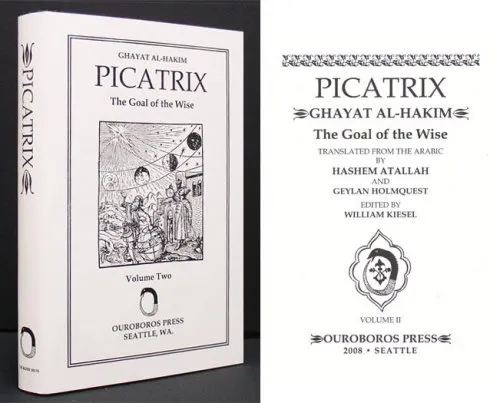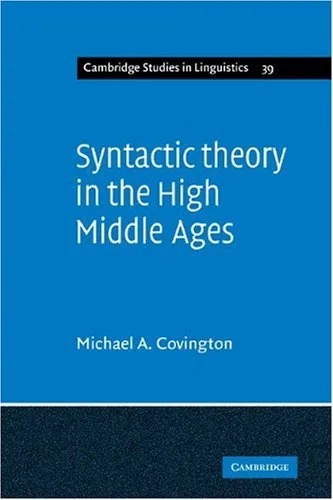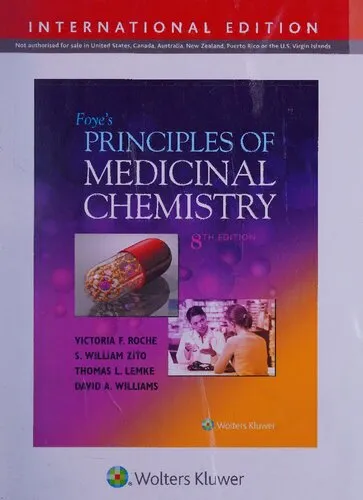Picatrix: Ghayat Al-Hakim- The Goal of the Wise. Translated from the Arabic by Hashem Atallah and Geylan Holmquest. Edited by William Kiesel. Volume II
4.5
Reviews from our users

You Can Ask your questions from this book's AI after Login
Each download or ask from book AI costs 2 points. To earn more free points, please visit the Points Guide Page and complete some valuable actions.Related Refrences:
Introduction to Picatrix: Ghayat Al-Hakim - The Goal of the Wise Volume II
Welcome to the mystical and profound world of 'Picatrix: Ghayat Al-Hakim - The Goal of the Wise, Volume II', a compendium of astrological and esoteric knowledge that remains one of the most indispensable texts in the realm of medieval and renaissance magical literature. This volume, translated from Arabic by Hashem Atallah and Geylan Holmquest, and expertly edited by William Kiesel, serves as a bridge connecting the ancient world’s wisdom with contemporary curiosity and scholarly pursuit. Encapsulating centuries of esoteric tradition, this volume continues to unveil the celestial wisdom and philosophical doctrines that governed the minds of sages and alchemists throughout history.
Summary of the Book
'Picatrix' is traditionally attributed to the Andalusian mathematician and astronomer, Maslama al-Majriti, although the exact authorship remains a matter of scholarly debate. This monumental work, originally composed in Arabic in the 11th century under the title 'Ghayat al-Hakim', blends astrological knowledge with hermetic and theurgic practices, serving as a comprehensive guide to practical magic as understood by medieval scholars. Volume II continues the discourse on the complex interplay between the celestial and terrestrial realms, offering insights into astrological configurations, talismanic sciences, and the philosophical underpinnings of magic.
The text is divided into meticulously organized chapters, each dedicated to a specific aspect of celestial magic, from the detailed astrology of the planets and the intricate art of talisman creation, to the meditative wisdom necessary for the would-be practitioner of these arts. Throughout, the volume underscores themes of harmony between the universe and the individual, urging readers to align themselves with cosmic principles for the purpose of both spiritual enlightenment and practical benefit.
Key Takeaways
- Understanding of medieval astrological cosmology and its integration with magical practices.
- Detailed instructions on the creation and consecration of talismans based on celestial configurations.
- Insights into the philosophical and spiritual foundations of astrological magic as recorded in historical texts.
- The emphasis on spiritual and moral preparedness in the practitioner for effective engagement with mystical arts.
Famous Quotes from the Book
"Just as the heavenly influences pervade the world without, so must the aspiring sage seek the virtues of those influences within."
"The wise align themselves with the stars, not through compulsion, but through harmony and understanding."
Why This Book Matters
'Picatrix: Ghayat Al-Hakim - The Goal of the Wise, Volume II' is more than a historical artifact; it is a living manual that continues to influence modern esoteric thought and practice. As an earnest compendium of knowledge that bridges astrology, magic, and philosophy, its relevance persists for scholars, historians, and practitioners alike. The Western magical tradition as it flourished during the Renaissance owes much to texts like Picatrix, where astrological premises were considered essential truths about the nature of reality and human potential therein.
The importance of this volume extends beyond its contents, serving as a catalyst for interdisciplinary study in fields ranging from the history of science and religion to classical studies and anthropology. As many contemporary readers seek to reconnect with traditional wisdom and practices, 'Picatrix' provides not only insights into ancient perceptions of the universe but challenges modern thinkers to consider the integration of science and spirituality, reflecting on how the two disciplines can inform and complement each other.
Free Direct Download
You Can Download this book after Login
Accessing books through legal platforms and public libraries not only supports the rights of authors and publishers but also contributes to the sustainability of reading culture. Before downloading, please take a moment to consider these options.
Find this book on other platforms:
WorldCat helps you find books in libraries worldwide.
See ratings, reviews, and discussions on Goodreads.
Find and buy rare or used books on AbeBooks.
Questions about Book
2315
بازدید4.5
امتیاز0
نظر98%
رضایتReviews:
4.5
Based on 0 users review
Questions & Answers
Ask questions about this book or help others by answering
No questions yet. Be the first to ask!














